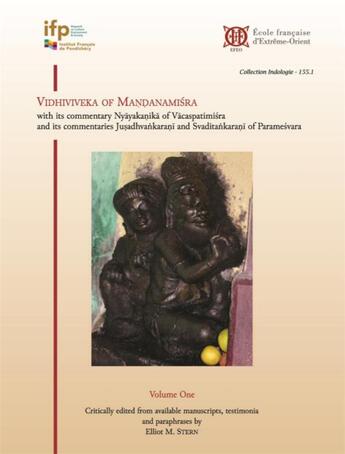Des idées de lecture pour ce début d'année !
Passionné(e) de lecture ? Inscrivez-vous
gratuitement ou connectez-vous pour rejoindre la
communauté et bénéficier de toutes les fonctionnalités du site !

The Vidhiviveka by Mandana Misra (about 660-720) is one of the most influential treatises of Vedic Exegesis (Mimamsa) after Kumarila. In forty-two stanzas with an extensive auto-commentary, Mandana examines all theories of verbal exhortation or "injunction" (vidhi) current in his time, before defending his own view that verbal exhortation conveys to an agent the means to achieve what that agent desires (istasadhana). The present volume offers the first critical edition of Mandana's text and its only known Sanskrit commentary, the Nyayakanika, by the famous 10th-century polymath Vacaspati Misra. Finally, two hitherto unpublished commentaries on Vacaspati's work, the Svaditankarani and Jusadhvankarani by Paramesvara I, a 14th-century author from Kerala, are edited here for the first time. The volume is organised in two parts, following the organisation of Mandana's text: a first, aporetic part where various conceptions of injunction are reviewed and refuted, and a second, constructive part, where the authors develop their own views on this topic. The texts themselves are preceded by a detailed introduction on the authors, their work and the manuscripts that have been used, and followed by six appendices discussing particular readings and quotations. Together, these texts constitute the most exhaustive overview to date of Brahmanical theory of action and commandment and of its foundations in psychology, metaphysics and religious philosophy.
Il n'y a pas encore de discussion sur ce livre
Soyez le premier à en lancer une !

Des idées de lecture pour ce début d'année !

Si certaines sont impressionnantes et effrayantes, d'autres sont drôles et rassurantes !

A gagner : la BD jeunesse adaptée du classique de Mary Shelley !

Caraïbes, 1492. "Ce sont ceux qui ont posé le pied sur ces terres qui ont amené la barbarie, la torture, la cruauté, la destruction des lieux, la mort..."